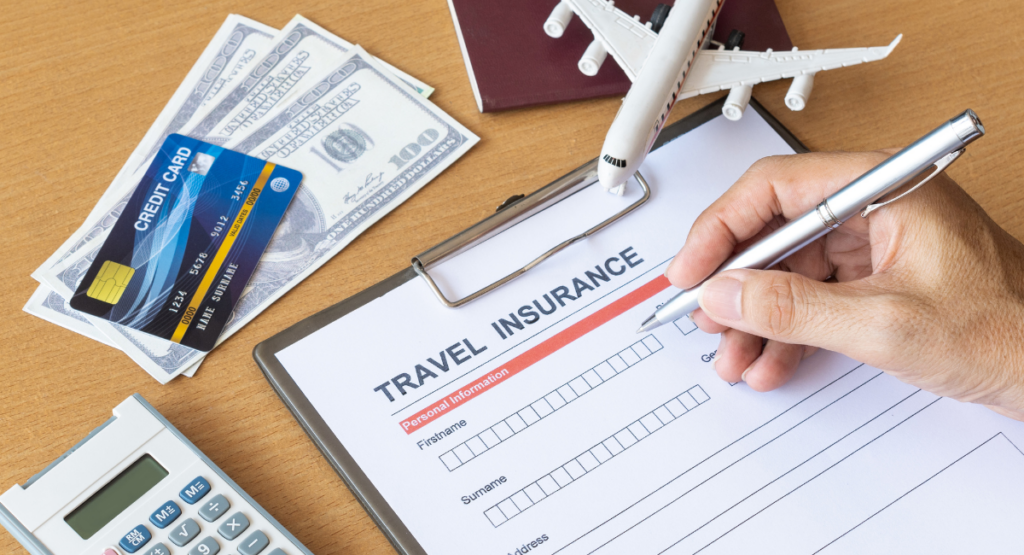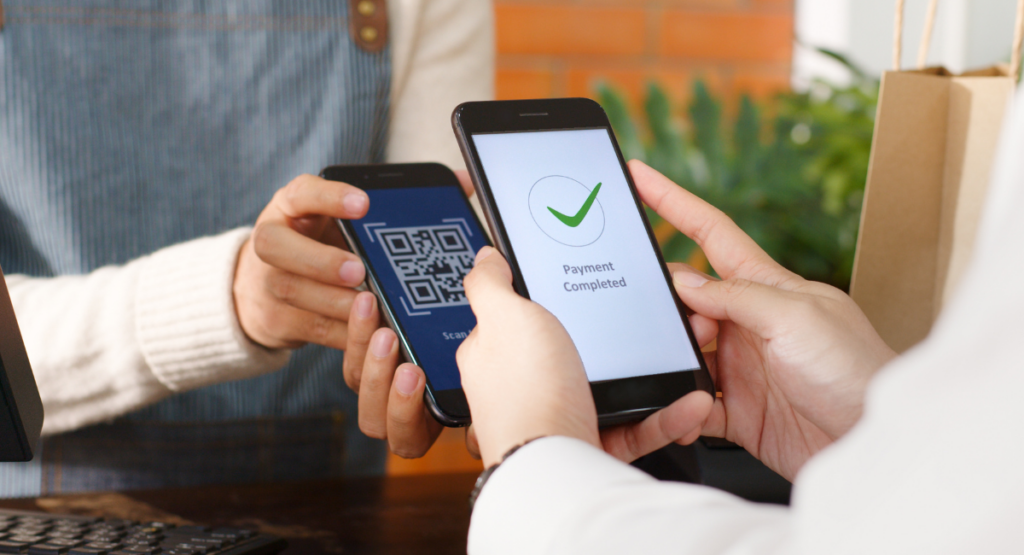Safe money handling while traveling. Setting off on a travel journey often requires meticulous planning, from itineraries to accommodations. However, determining how to carry and spend money abroad is one of the most crucial aspects to consider. The age-old debate between cash and cards still holds relevance today, but with modern technological advances, there’s a broader spectrum to evaluate. Here’s a guide to help navigate safe payment methods while traveling.
Safe money handling while traveling: Cash The Universal Medium
Advantages:
- Widely Accepted: Cash is universally accepted, crucial for remote areas or places without advanced banking infrastructure.
- Easy for Small Purchases: For street vendors, local buses, or small eateries, cash might be the only accepted form of payment.
- Bargaining Power: In markets where haggling is common, cash can give you a negotiating edge.
- No Foreign Transaction Fees: Unlike some cards, with cash, you know exactly how much you’re spending without hidden fees.
Disadvantages:
- Risk of Theft: Carrying large amounts exposes you to the risk of theft or loss.
- Currency Exchange Rates: Depending on where you exchange money, rates can vary, and you might not always get the best deal.
- Bulk and Inconvenience: Carrying significant amounts of cash can be cumbersome and requires planning how much to withdraw or exchange.

Card: The Modern Essential
Advantages:
- Convenience: Swipe, dip, or tap – it’s that simple. Plus, you don’t have to worry about carrying change.
- Security: In case of theft or loss, cards can be blocked instantly. Many also offer fraud protection.
- Track Spending: Easier to manage budgets and monitor transactions.
- Loyalty Points and Rewards: Many credit cards offer points, cash back, or other rewards for spending.
- Emergency Funding: Credit cards can be invaluable during unexpected expenses.
Disadvantages:
- Not Always Accepted: Especially in remote locations or smaller establishments, cards may not be viable.
- Foreign Transaction Fees: Some cards charge fees for international transactions.
- Dynamic Currency Conversion: Some merchants might offer to convert transactions into your home currency. This frequently entails unfavorable exchange rates.
Digital Wallets & Mobile Payment Systems
With the rise of fintech, mobile payment platforms like Apple Pay, Google Pay, and Samsung Pay, or country-specific apps like WeChat Pay in China, are becoming more popular.
Advantages:
- Convenience: No need for physical cards or cash – just your phone.
- Instant Currency Conversion: Many apps display real-time conversion rates, letting you know exactly how much you’re spending.
- Security: Biometric authentication, encryption, and the ability to remotely wipe your phone provide added security layers.
Disadvantages:
- Limited Acceptance: Not every merchant will accept digital wallet payments, especially in less developed regions.
- Dependency on Technology: If your phone’s battery dies, you’re without a payment method. Likewise, if you lose your phone or encounter technical issues, it could pose problems.

Tips for Safe Travels:
- Diversify: Don’t rely solely on one method. Carry a mix of cash, cards, and digital solutions.
- Notify Your Bank: Before traveling, inform your bank about your destinations to prevent them from flagging foreign transactions as suspicious and freezing your account.
- Backup: Make photocopies or digital backups of your cards, keeping them separate from the originals.
- Use Hotel Safes: Store excess cash and backup cards in hotel safes or other secure locations.
- Hidden Pouches: Consider using money belts or hidden pouches to keep cash safe.
Prepaid Travel Cards
What Are They? These are cards you preload with a certain amount of money in either your local currency or the currency of your destination. They function similarly to debit cards but are exclusively for travel purposes.
Advantages:
- Budget Control: You can only spend what’s loaded, helping you stick to your budget.
- Fixed Exchange Rates: Lock in exchange rates when you load the card, shielding you from fluctuating rates during your trip.
- Safety: If lost, you only risk the amount loaded on the card.
Disadvantages:
- Fees: Some cards come with loading, reloading, and withdrawal fees.
- Not Universally Accepted: They might not be accepted everywhere, especially for hotel deposits or car rentals.

Cryptocurrencies and Travel
With the increasing acceptance of digital currencies, some travelers are using cryptocurrencies like Bitcoin for their travel expenses.
Advantages:
- No Foreign Transaction Fees: Direct peer-to-peer transactions eliminate intermediary costs.
- Currency Fluctuations: This can work in your favor if the value of your cryptocurrency goes up during your trip.
Disadvantages:
- Volatility: Cryptocurrencies can be highly volatile. A drastic drop could significantly affect your travel budget.
- Limited Acceptance: Many places still don’t accept cryptocurrency, so you’ll need traditional payment methods as backups.

Local Bank Accounts for Long-Term Travelers
If you’re planning an extended stay in a particular country, opening a local bank account can be advantageous.
Advantages:
- Avoid International Fees: Local transactions are often cheaper.
- Convenience: Makes it easier to receive local payments or handle local financial commitments.
Disadvantages:
- Documentation: The process can be bureaucratic, requiring multiple proofs of identity, address, and sometimes even a local reference.
- Maintenance: There might be monthly fees or minimum balance requirements.
Travel Insurance with Financial Protections
Consider travel insurance policies that cover financial losses, such as theft or trip cancellations.
Advantages:
- Peace of Mind: Covers unexpected losses or emergencies.
- Comprehensive Protection: Apart from financial losses, it also often covers medical emergencies.
Disadvantages:
- Cost: Premium policies can be expensive.
- Claim Process: Claiming insurance can sometimes involve a lot of paperwork and might not always guarantee full reimbursement.

Words of Wisdom
- Research: Before you travel, research the financial landscape of your destination. Are ATMs easily accessible? Is it a cash-heavy society or card-friendly? Knowledge will guide your financial preparations.
- Emergency Fund: Always have a small stash of universally accepted currency, like US dollars or euros, for emergencies.
- Local Knowledge: Engage with locals or expats through online forums or during your trip to gain insights into the best financial practices in the region.
- Regularly Monitor Accounts: With digital banking apps, it’s easy to keep an eye on your accounts. Regular checks can help spot and report any suspicious activities quickly.
Travel is an enriching experience, and with prudent financial planning, it can be smooth and stress-free. Embrace the journey, armed with knowledge and preparation! Safe travels!
A world brimming with adventures also comes with its intricate financial nuances. As international travel becomes increasingly seamless, there are newer challenges and opportunities travelers face in managing their finances on the go. Delving deeper, let’s uncover additional layers of financial wisdom for the global traveler.
Leveraging Money Transfer Services
Platforms like TransferWise (now Wise), PayPal, and Revolut have revolutionized the way we send and receive money across borders.
Advantages:
- Speed: Faster than traditional bank transfers in many instances.
- Transparent Fees: Clear upfront fee structures with real-time exchange rates.
- Flexibility: Send money to yourself or others in various currencies.
Disadvantages:
- Not Always the Cheapest: Depending on the amount and the corridor, fees can sometimes be higher than bank charges.
- Requires Internet: You need a stable Internet connection to initiate transfers.

Using Multi-currency Accounts
Many modern banks and financial platforms offer accounts where you can hold multiple currencies simultaneously.
Advantages:
- Lock-in Rates: Convert your money when rates are favorable and hold various currencies.
- Avoid Conversion Fees: Spend in the local currency without incurring conversion fees every time.
Disadvantages:
- Maintenance Fees: Some multi-currency accounts may have associated costs or inactivity fees.
Loyalty Programs and Memberships
Airlines, hotel chains, and even credit card companies offer programs where you can earn points or miles.
Advantages:
- Savings: Redeem points for flights, upgrades, hotel stays, or other perks.
- Exclusive Benefits: Enjoy advantages like lounge access, priority check-in, or extra baggage allowance.
Disadvantages:
- Restrictions: Blackout dates or limited availability can make redeeming points challenging.
- Expiration: If not used, points or miles might expire after a certain period.
Local Mobile Banking Apps
When staying longer in a particular country, using local mobile banking apps can offer a plethora of localized financial solutions.
Advantages:
- Localized Promotions: Access to local deals, discounts, or cashbacks.
- Integration with Local Services: Easily pay for local utilities, transport, or even entertainment.
Disadvantages:
- Language Barrier: Some apps might not have an English version, making navigation challenging.
- Interoperability: Transferring money between your local app and your primary bank account might not always be straightforward.

Seasoned Traveler Tips
- Diversification: Just as with investments, don’t put all your financial eggs in one basket. Split your resources among cards, cash, and digital platforms.
- Know Local Customs: In some cultures, tipping is expected, while in others, it’s considered rude. Being aware can prevent awkward situations and unnecessary expenses.
- Be Wary of Scams: Tourists are often prime targets for financial scams. Stay vigilant, and when in doubt, trust your instincts or seek advice from trusted locals or fellow travelers.
- Stay Updated: Currency rates, local taxes, or banking rules can change. Regularly update yourself, especially if you’re visiting a place after a long time.
Conclusion
The world of travel finance is as vast as the world itself. By continuously educating oneself and being adaptable, one can traverse the globe without financial hitches, ensuring that the journey remains the highlight, not monetary concerns. Here’s to enriching travels and insightful experiences!


